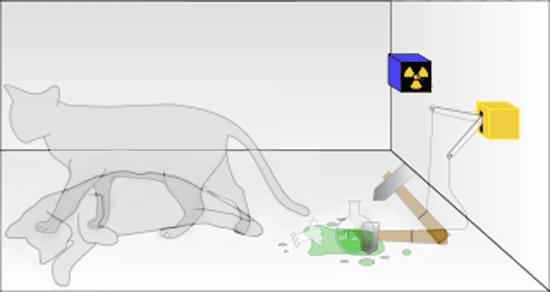
Two galaxies collide in a far off part of the universe resulting in violent collisions on a scale that is quite simply unimaginable to the human mind. Does anybody care? Nobody except maybe a few astronomers. A hot meteorite falls into a remote part of an ocean, and kills 10,000 fishes, and millions of microbial life forms. Is any human bothered by it? Not likely.
A brick falls from a building and injures a woman. Suddenly, everybody has an opinion about it, and even newspapers may report on the event.
Life cares about survival before it cares about reality. The magnitude of importance to life of an event is quite different from the magnitude of the event.
And that point makes living forms inherently biased in their study of nature and natural phenomena. Living forms may tend to even personalize nature - attributing to nature the same feelings which they have. Just like people used to believe that Earth was the center of universe and all other stars and planets moved around Earth, one of the fundamental instincts of living forms is to believe that the universe exists for them because they are alive to observe it. That instinct is the source of great pleasures when conditions of survival improve for a life form, and the source of great fears when such conditions deteriorate.
Either way, looking at reality becomes impossible for living forms. To observe nature in its true form, it appears, one has to stop caring about anything. And yet survive to make the observations. Quite a feat, if someone can accomplish it successfully. The observer-observed link has q
 uite interesting aspects in Quantum physics - such as the Schrödinger's Cat, or the Heisenberg Uncertainty Principle.
uite interesting aspects in Quantum physics - such as the Schrödinger's Cat, or the Heisenberg Uncertainty Principle.So, we come to the important question from the last post: How do we know reality? The truthful answer is that we really don't. We only build models of reality and then carry out experiments to test the validity of those models. That is all that we can do. Some people believe that coherence of various unrelated models should be evidence of the possibility that a bigger/deeper model can be constructed, which will subsume all the smaller scale models. That is, for the most part, what we call the pursuit of science. So, first we build a crude model, then we define its parameters (variables), then we test the model for success or failure, and after all this comes analysis, which gives us ideas about how to refine / reshape the original model of reality of a phenomena which we are interested in. Our approach to reality, therefore, is like a tangent trying to study a circle - the two ma
 y intersect, but the linear tangent will never know the reality of curved lines.
y intersect, but the linear tangent will never know the reality of curved lines.Unless a mind comes along which, for one reason or another, can do this modeling and refinement at speeds far faster than those of ordinary people. Such minds, called 'great' minds if they can articulate their perceptions well even mathematically, may even possess non-linear instincts which can relate better to the non-linear nature rather than to the linear thinkin
 g people around them. Solitude and silence attract such minds, while the linearly thinking people seem to aggregate in societies and build economies. Great minds could be mutually incoherent, while linear minds fall in step with each other.
g people around them. Solitude and silence attract such minds, while the linearly thinking people seem to aggregate in societies and build economies. Great minds could be mutually incoherent, while linear minds fall in step with each other.It may be true that we need both kinds of people to run this world well.
Or to defend it against threats.
1 comment:
Author's Quote: It may be true that we need both kinds of people to run this world well.
Or to defend it against threats.
+++++++++++++++++++++++++
A person concerned about running the world, defending against threats, cares about survival. That makes you a realist.
Post a Comment